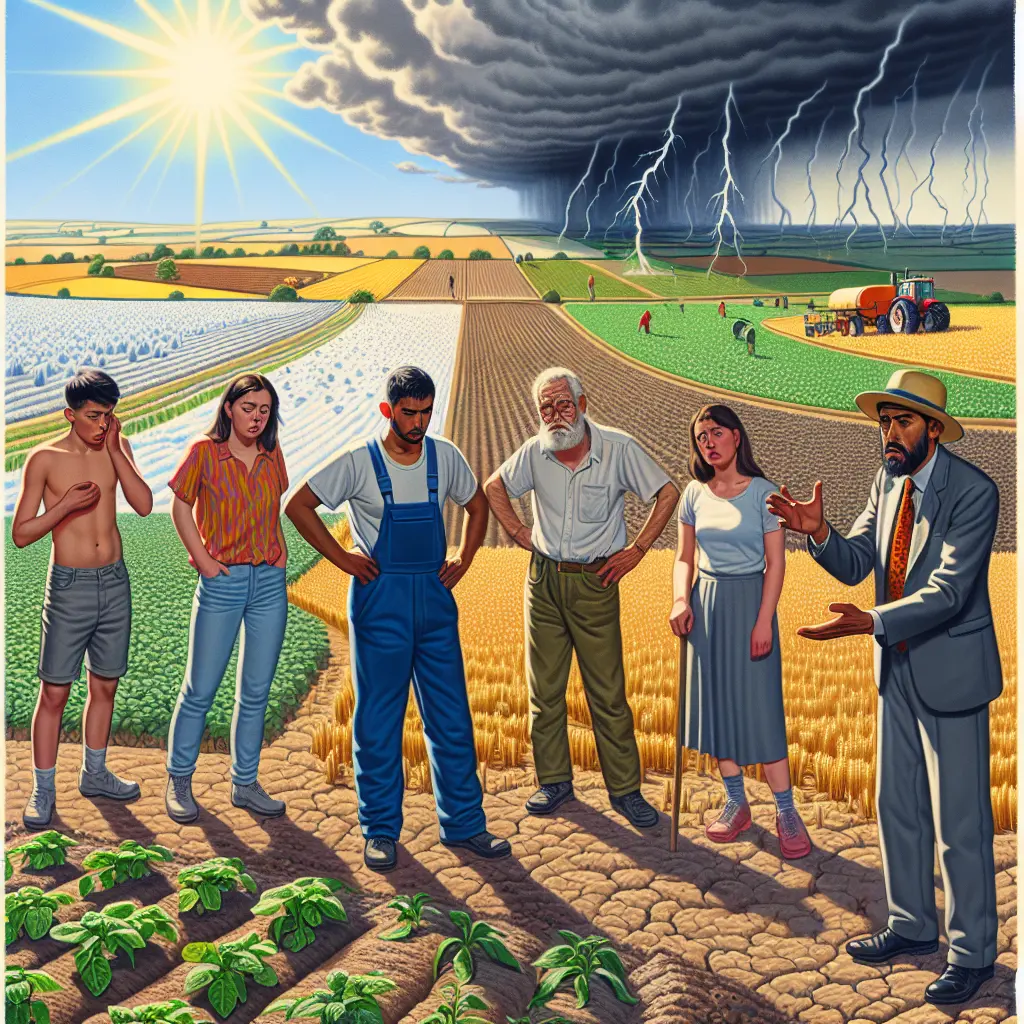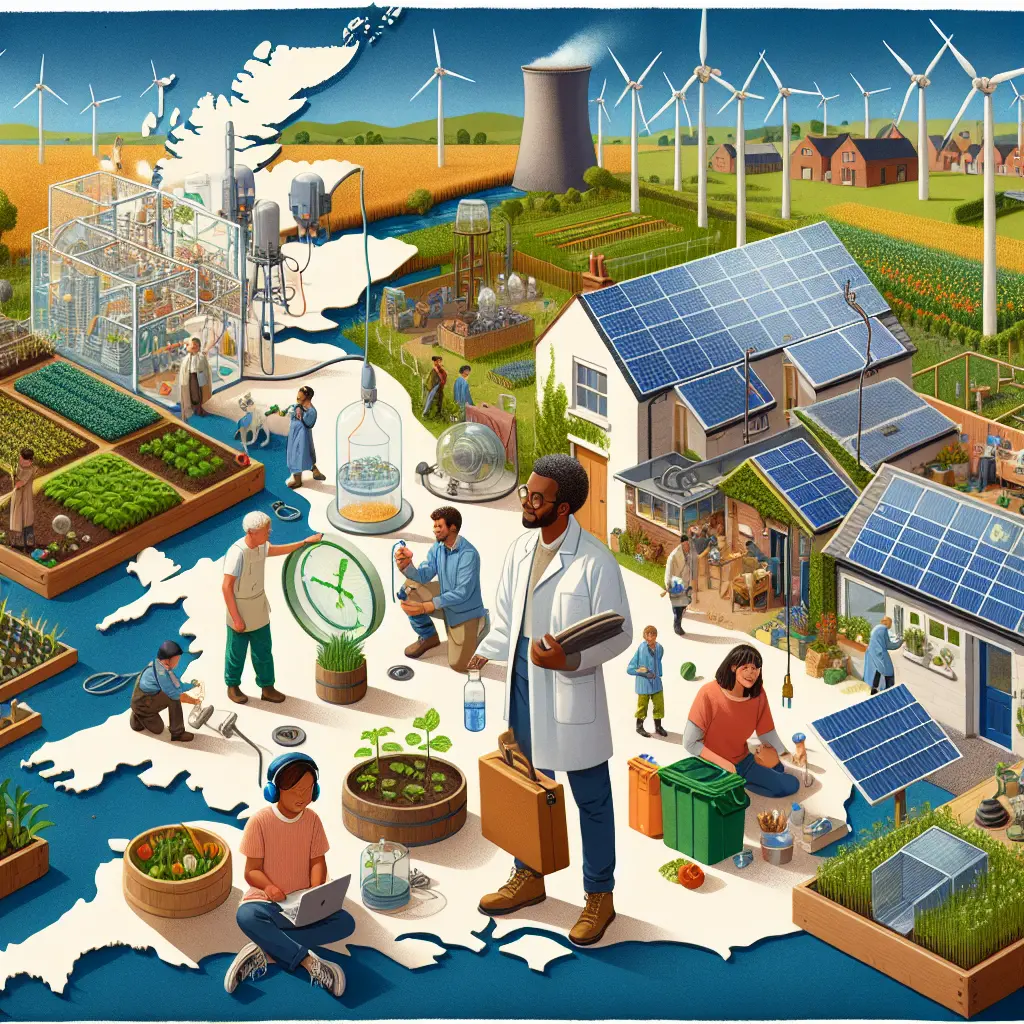In the verdant fields of the United Kingdom, a quiet storm is brewing. Climate change, with its complex web of environmental shifts, is casting a long shadow over UK agriculture. From the lush pastures that support livestock farming to the vast tracts of land dedicated to crop production, every facet of British farming is under siege by the changing climate. The impact of climate change on UK farming is profound and multifaceted, affecting everything from soil health to water management, and necessitating a robust response in terms of adaptation and mitigation.
UK agriculture climate change is not a distant threat; it's a current reality. Farmers across the region are witnessing more frequent extreme weather events, from unprecedented heatwaves to unexpected frosts, and heavier rainfall leading to flooding. These events pose a significant risk to livestock and crop yields, disrupting traditional farming calendars and practices.
Specifically, climate change UK crop production faces challenges such as altered growing seasons and increased pestilence. Warmer winters and wetter springs are particularly conducive to pest and disease proliferation, which can devastate crops. Similarly, climate change and livestock in the UK are suffering due to heat stress and reduced quality of pasture land, impacting both meat and dairy industries.
Critical to addressing these challenges is the focus on water management in UK agriculture climate change scenarios. More erratic rainfall patterns necessitate innovative approaches to water conservation and flooding mitigation. Soil health is another cornerstone impacted by climate change; as temperatures rise and rainfall becomes unpredictable, maintaining fertile, healthy soil becomes increasingly difficult.
Adaptation strategies are essential for the survival of UK farming. This includes developing climate-resilient crop varieties and enhancing the genetic traits of livestock to cope with warmer climates. UK agricultural policy on climate change has begun to reflect these needs, encouraging practices that promote sustainability and resilience.
Sustainable Farming Practices and Policy Support
Sustainable farming practices in the UK are crucial for reducing the carbon footprint of UK agriculture. These practices include precision farming techniques that optimize input usage like water and fertilizers, reducing waste and emissions. The government has also played a role in shaping a resilient agricultural sector through policies that encourage sustainable practices and provide financial support for farmers adopting these methods.
Building UK farming climate resilience is not just about adapting to changes but also preparing for extreme weather impacts on UK farming. This involves creating robust infrastructures, such as better drainage systems to prevent flood damage and shade structures to protect livestock from heat.
Climate change mitigation in UK agriculture involves not only adapting existing practices but also innovating new ones that can reduce overall greenhouse gas emissions. Methods such as improved manure management and optimized livestock diets can significantly lower methane emissions, a potent greenhouse gas.
The future of UK agriculture in the face of climate change looks to be one of innovation and adaptation. With continued research and policy support, UK agriculture can not only survive but thrive despite the challenges posed by a changing climate. This will involve a concerted effort from all stakeholders—farmers, scientists, policymakers, and consumers—to foster a sustainable, resilient agricultural system.
Recent Updates and News
Recent developments highlight both the challenges and innovations in agriculture related to climate change. Innovations such as puzzle-solving robots, though primarily developed for other industries, hint at future applications in agriculture where similar technology could revolutionize how we address complex problems like crop planting strategies or livestock management in rapidly changing conditions.
Furthermore, initiatives like those led by YouTubers such as MrBeast, who has mobilized massive clean-up efforts for oceans and beaches, underscore the broader environmental consciousness rising globally which also impacts agricultural sustainability practices. These movements not only clean up waste but also help restore natural habitats which can benefit agricultural areas by maintaining natural ecosystems.
As we continue to grapple with the implications of climate change on UK agriculture, it is clear that both challenges and opportunities lie ahead. Through a combination of adaptive practices, supportive policies, sustainable techniques, and innovative technologies, the sector can navigate these turbulent times. The commitment to sustainability seen across various fields is inspiring and offers hope that with collective effort and ingenuity, UK agriculture can achieve resilience against climate change.










Leave a Comment